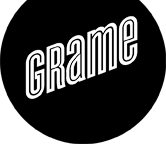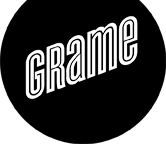Mots clés
audio communication compiler composition dataflow Domain Specific Language DSP ecosystem Elody FAUST functional graphic inscore interaction language lock-free MIDI MidiShare music music score musicale musique operating processing programming real-time score signal synchronization systems
2018 |
|
Towards an Open Web Audio Plugin Standard (Inproceeding) Companion Proceedings of the The Web Conference 2018, pp. 759–766, International World Wide Web Conferences Steering Committee, Lyon, France, 2018, ISBN: 978-1-4503-5640-4. (Abstract | Links | BibTeX | Étiquettes: audio effects and instruments, plugin architecture, web standards, webaudio) @inproceedings{Buffa:2018:TOW:3184558.3188737,
title = {Towards an Open Web Audio Plugin Standard}, url = {TowardOpenWebAudioPluginStandard_FINAL1.pdf}, doi = {10.1145/3184558.3188737}, isbn = {978-1-4503-5640-4}, year = {2018}, date = {2018-01-01}, booktitle = {Companion Proceedings of the The Web Conference 2018}, pages = {759–766}, publisher = {International World Wide Web Conferences Steering Committee}, address = {Lyon, France}, series = {WWW ’18}, abstract = {Web Audio is a recent W3C API that brings the world of computer music applications to the browser. Although developers have been actively using it since the first beta implementations in 2012, the number of web apps built using Web Audio API cannot yet compare to the number of commercial and open source audio software tools available on native platforms. Many of the sites using this new technology are of an experimental nature or are very limited in their scope. While JavaScript and Web standards are increasingly flexible and powerful, C and C++ are the languages most often used for real-time audio applications and domain specific languages such as FAUST facilitate rapid development with high performance. Our work aims to create a continuum between native and browser based audio app development and to appeal to programmers from both worlds. This paper presents our proposal including guidelines and proof of concept implementations for an open Web Audio plug-in standard-essentially the infrastructure to support high level audio plug-ins for the browser author = Buffa, Michel and Lebrun, J’erôme and Kleimola, Jari and Larkin, Oliver and Letz, St’ephane}, keywords = {audio effects and instruments, plugin architecture, web standards, webaudio}, pubstate = {published}, tppubtype = {inproceedings} } Web Audio is a recent W3C API that brings the world of computer music applications to the browser. Although developers have been actively using it since the first beta implementations in 2012, the number of web apps built using Web Audio API cannot yet compare to the number of commercial and open source audio software tools available on native platforms. Many of the sites using this new technology are of an experimental nature or are very limited in their scope. While JavaScript and Web standards are increasingly flexible and powerful, C and C++ are the languages most often used for real-time audio applications and domain specific languages such as FAUST facilitate rapid development with high performance. Our work aims to create a continuum between native and browser based audio app development and to appeal to programmers from both worlds. This paper presents our proposal including guidelines and proof of concept implementations for an open Web Audio plug-in standard-essentially the infrastructure to support high level audio plug-ins for the browser author = Buffa, Michel and Lebrun, J’erôme and Kleimola, Jari and Larkin, Oliver and Letz, St’ephane
|
|
WAP: Ideas for a Web Audio Plug-in Standard (Inproceeding) Proceding of the WEB Audio Conference, Berlin 2018, International World Wide Web Conferences Steering Committee, 2018. (Abstract | Links | BibTeX | Étiquettes: audio effects and instruments, plugin architecture, web standards, webaudio) @inproceedings{Buffa:2018,
title = {WAP: Ideas for a Web Audio Plug-in Standard}, url = {WAC-2018-WebAudio_needs_an_OpenPluginStandard.pdf}, year = {2018}, date = {2018-01-01}, booktitle = {Proceding of the WEB Audio Conference, Berlin 2018}, publisher = {International World Wide Web Conferences Steering Committee}, series = {WAC 18}, abstract = {Several native audio plug-in formats are popular today including Steinberg’s VST, Apple’s Audio Units, Avid’s AAX and the Linux audio community’s LV2. Although the APIs are different, all exist to achieve more or less the same thing – represent an instrument or audio effect and allow it to be loaded by a host application. In the Web Audio API such a high-level audio plug-in entity does not exist. With the emergence of web-based audio software such as digital audio workstations (DAWs), it is desirable to have a standard in order to make Web Audio instruments and effects interoperable. Since there are many ways of developing for Web Audio, such a standard should be flexible enough to support different approaches, including using a variety of programming languages. New functionality that is enabled by the web platform should be available to plug-ins written in different ways. To this end, several groups of developers came together to make their work compatible, and this paper presents the work achieved so far. This includes the development of a draft API specification, a small preliminary SDK, online plug-in validators and a set of examples written in JavaScript. These simple, proof of concept examples show how to discover plug-ins from repositories, how to instantiate a plug-in and how to connect plug-ins together. A more ambitious host has also been developed to validate the WAP standard: a virtual guitar “pedal board” that discovers plug-ins from multiple remote repositories, and allows the musician to chain pedals and control them via MIDI. author = Buffa, Michel and Lebrun, J’erôme and Kleimola, Jari and Larkin, Oliver and Pellerin, Guillaume and Letz, St’ephane}, keywords = {audio effects and instruments, plugin architecture, web standards, webaudio}, pubstate = {published}, tppubtype = {inproceedings} } Several native audio plug-in formats are popular today including Steinberg’s VST, Apple’s Audio Units, Avid’s AAX and the Linux audio community’s LV2. Although the APIs are different, all exist to achieve more or less the same thing – represent an instrument or audio effect and allow it to be loaded by a host application. In the Web Audio API such a high-level audio plug-in entity does not exist. With the emergence of web-based audio software such as digital audio workstations (DAWs), it is desirable to have a standard in order to make Web Audio instruments and effects interoperable. Since there are many ways of developing for Web Audio, such a standard should be flexible enough to support different approaches, including using a variety of programming languages. New functionality that is enabled by the web platform should be available to plug-ins written in different ways. To this end, several groups of developers came together to make their work compatible, and this paper presents the work achieved so far. This includes the development of a draft API specification, a small preliminary SDK, online plug-in validators and a set of examples written in JavaScript. These simple, proof of concept examples show how to discover plug-ins from repositories, how to instantiate a plug-in and how to connect plug-ins together. A more ambitious host has also been developed to validate the WAP standard: a virtual guitar “pedal board” that discovers plug-ins from multiple remote repositories, and allows the musician to chain pedals and control them via MIDI. author = Buffa, Michel and Lebrun, J’erôme and Kleimola, Jari and Larkin, Oliver and Pellerin, Guillaume and Letz, St’ephane
|

